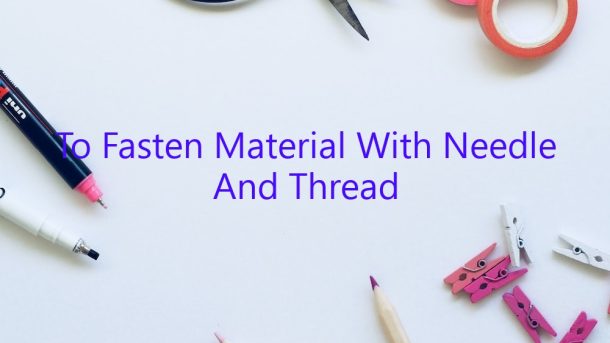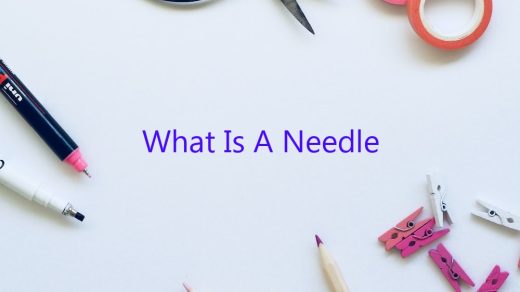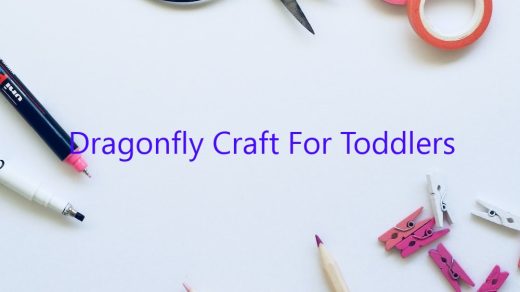To fasten material with needle and thread, you need to first select the type of thread you will use. There are many types of thread available, including cotton, silk, nylon, and polyester.
Once you have selected the thread, you will need to select the needle that is best suited for the type of material you are using. Needles are available in a variety of sizes and shapes, so it is important to select the needle that is the best fit for the material you are using.
Once you have selected the thread and needle, you will need to thread the needle. This can be done by pulling the thread through the eye of the needle.
Once the needle is threaded, you can begin to sew the material together. To do this, you will need to make sure the needle is inserted into the fabric at the correct angle. The needle should be inserted into the fabric so that the thread forms a “V” shape as it comes out of the fabric.
You will then need to gently pull the thread through the fabric. Be careful not to pull the thread too tightly, as this can damage the fabric.
Once the thread is pulled through the fabric, you will need to hold the thread taut and make a small stitch in the fabric. You can then release the thread and make another stitch in the fabric.
Be careful not to pull the fabric too tightly as you sew, as this can cause the fabric to rip. Sew slowly and carefully to ensure that the fabric does not rip.
When you have finished sewing the fabric together, you will need to tie a knot in the thread to secure it. To do this, you will need to hold the thread between your thumb and forefinger and make a loop with the thread.
You will then need to insert the needle into the loop and pull the thread tight. You will then need to make a second loop with the thread and insert the needle into the loop.
You will then need to pull the needle and thread through the loop to create a knot. You can then cut the excess thread.
Contents
What is using a needle and thread called?
There are a variety of terms used to describe the use of a needle and thread. Sewing, stitching, and needlework are all terms used to describe the use of a needle and thread to join two pieces of fabric together. Sewing is the most general term, and it can be used to describe the use of a needle and thread to join any two pieces of fabric together. Stitching is a more specific term that is used to describe the use of a needle and thread to join two pieces of fabric together in a straight line. Needlework is a more specific term that is used to describe the use of a needle and thread to join two pieces of fabric together in a decorative way.
What is the art of attaching object with the use of needles and thread?
The art of attaching object with the use of needles and thread is an ancient form of art that is still practiced today. This type of sewing is often referred to as embroidery. While the techniques used vary, the goal of embroidery is to create a beautiful and intricate design using thread.
There are a few different methods that can be used in embroidery. The most common is called cross-stitch. In cross-stitch, the embroiderer will create a design with a series of X’s and O’s. Another popular technique is called counted thread embroidery. In this method, the embroiderer will use a grid to create a precise design. The thread is then counted to ensure that each stitch is placed in the correct spot.
There are a variety of different types of thread that can be used in embroidery. The most common type is called floss. Floss is made up of six strands of thread that are twisted together. It is available in a variety of colors, and is often used to create detailed designs. Some other types of thread that can be used in embroidery include stranded cotton, silk, and metallic thread.
Embroidery is a beautiful art form that can be used to create stunning designs. It can be used to embellish clothing, fabric, and other objects. While it may seem like a difficult art form to learn, it can be mastered with a little bit of practice.
What is the thing called that holds thread?
The thing called a bobbin holds thread. It is a small, cylindrical object with a hole in the center. Bobbins are used in a variety of ways, including in sewing machines and looms.
How do you tie a needle and thread?
A needle and thread can be used to sew a seam, to attach a patch, or to darn a hole. It is important to know how to tie a needle and thread securely so that it doesn’t come undone.
There are several ways to tie a needle and thread. One way is to tie a square knot. To do this, thread the needle and tie a knot in the end of the thread. Hold the needle in one hand and the thread in the other. Pull the needle and thread taut. Twist one hand in the direction of the thread and the other hand in the opposite direction. This will form a square knot.
Another way to tie a needle and thread is to use a surgeon’s knot. To do this, thread the needle and tie a knot in the end of the thread. Hold the needle in one hand and the thread in the other. Pull the needle and thread taut. Twist one hand in the direction of the thread and the other hand in the opposite direction. This will form a surgeon’s knot.
A third way to tie a needle and thread is to use a reef knot. To do this, thread the needle and tie a knot in the end of the thread. Hold the needle in one hand and the thread in the other. Pull the needle and thread taut. Twist one hand in the direction of the thread and the other hand in the opposite direction. This will form a reef knot.
A fourth way to tie a needle and thread is to use a larkshead knot. To do this, thread the needle and tie a knot in the end of the thread. Hold the needle in one hand and the thread in the other. Pull the needle and thread taut. Twist one hand in the direction of the thread and the other hand in the opposite direction. This will form a larkshead knot.
whichever way you choose, make sure the knot is tight against the needle so it can’t pull through the fabric.
What is a place for pins and needles?
A place for pins and needles is most commonly a euphemism for a place for pain. It can also be used to describe a feeling of being nervous or anxious.
What are sewing needles used for?
Sewing needles are used for various purposes such as hand stitching fabrics, mending clothes and making new clothes.
There are different types of sewing needles that are used for different types of stitching. The most common type of needle is the sharp needle which is used for general purpose stitching. The sharp needle has a pointed end that pierces the fabric easily.
Another type of needle is the curved needle which is used for sewing curved seams. The curved needle has a curved end that allows it to move easily through the fabric.
Another type of needle is the tapestry needle which is used for weaving. The tapestry needle has a large eye that allows multiple strands of yarn to be threaded through it.
Sewing needles come in different sizes and types depending on the purpose for which they are used.
What is the art and craft of attaching objects or fastening by stitching *?
The art and craft of attaching objects or fastening by stitching is an ancient one, with many varied and beautiful techniques. Whether it’s through the use of a needle and thread, or a more modern adhesive, attaching objects can add a touch of beauty and functionality to any project.
There are many different ways to attach objects. The most basic method is sewing them together with a needle and thread. This is a time-tested method that is still used today for everything from quilts to clothing. It’s a relatively simple process, and it can be used to join two pieces of fabric together, or to attach a fabric patch to a garment.
Another method of attaching objects is with a hot glue gun. This is a more modern method that uses a hot glue gun to melt a thin layer of glue onto the surfaces of the objects that are being attached. This is a quick and easy method, and it’s perfect for attaching small objects or for projects that need to be finished quickly.
There are also a variety of adhesives that can be used to attach objects. These include things like epoxy, super glue, and contact cement. These adhesives come in a variety of forms, including liquids, gels, and pastes. They are perfect for attaching objects that need to be held together firmly, and they can be used on a variety of materials, including metal, plastic, and wood.
When it comes to attaching objects, there are a variety of methods to choose from. Whether you’re using a needle and thread, a hot glue gun, or an adhesive, there is a method that will fit your needs. So, the next time you need to attach something, take a look at all of your options and find the method that is best for you.




